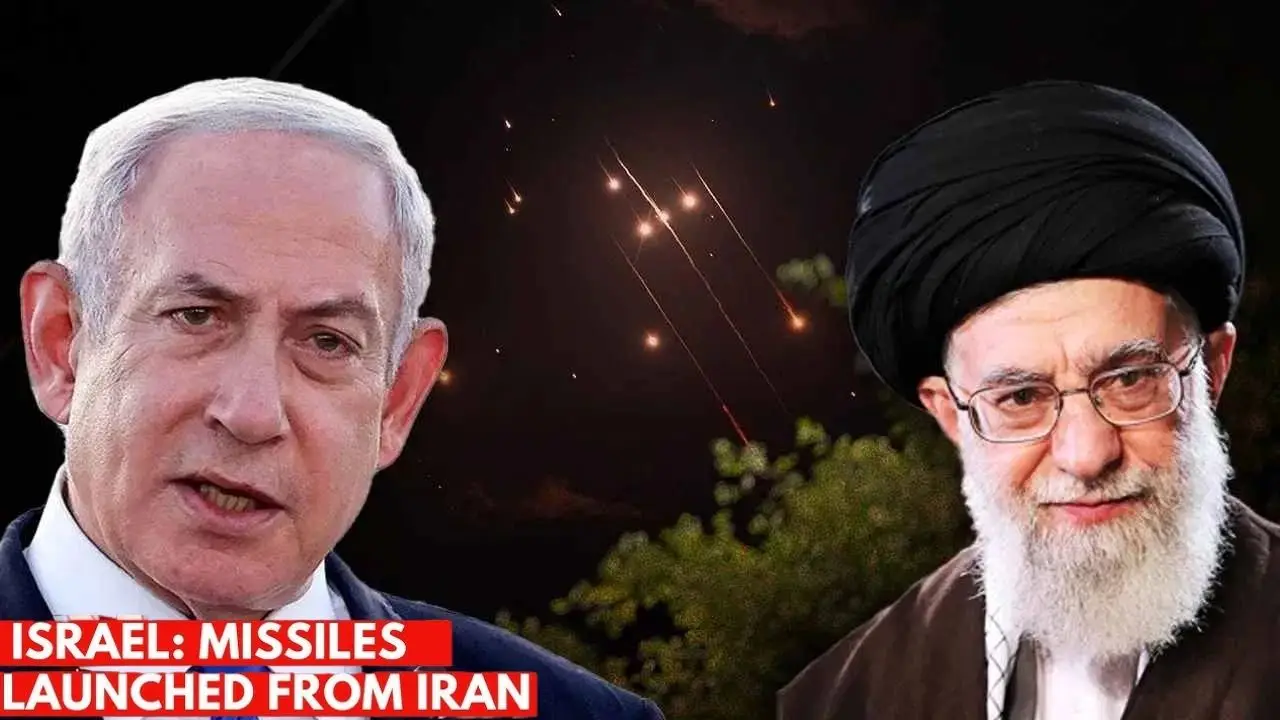Iran Vs Israel On Tuesday, Iran launched a significant missile attack on Israel, firing roughly 180 missiles. An increase in crude oil prices globally has been observed as a result of this heightened tension.
Unsettling news has surfaced just before India’s holiday season. Yes, it was anticipated that the country’s long-stable prices of gasoline and diesel would drop in September after the global crude oil market saw a sharp decline. However, it appears that these expectations are being dashed by the escalating conflict between Iran Vs Israel.
Its effect is also visible and the price of crude has again reached $ 75 per barrel. If it increases, then the public may get a big shock instead of benefit amid festivals. Tell us how and what impact the price of crude oil has on the cost of gasoline and diesel.
Ali Khamenei- Supreme Islamic Leader
85-year-old Iran’s supreme religious leader is Ali Khamenei. For thirty-five years, he has served as Iran’s supreme leader. All Iranian-related decisions are made by Ali Khamenei. In addition, he is the army’s supreme commander.
There isn’t currently a rival to his authority in Iran. Following Tuesday’s attack on Israel, Khamenei declared, “Do not be alarmed; God’s assistance is on the way, and victory is almost here.” Right now, Ali Khamenei is going through a very difficult time in his life. The American continent. His standing in Iran has suffered as a result of Israeli attacks.
Masoud Pezeshkian- President of Iran
Masoud Pezeshkian was recently elected president of Iran. He became president after former President Ibrahim Raisi passed away recently. An important part of Iran’s military and security strategy is Masoud Pezeshkian.
The Supreme Leader of Iran, Ali Khamenei, is believed to be very close to him. His brief tenure is thought to have been very challenging. Soon after taking office, Hamas leader Haniyeh was assassinated by Iran. After that, Israel also murdered Hassan Nasrallah and Iranian General Abbas Nilofarshan, two of Iran’s closest allies, during the fighting.
Mohammad Reza Ashtiani- Defense Minister of Iran
The Iranian Defense Minister at the moment is Mohammad Reza Qarei Ashtiani. About the Iranian operation on Tuesday, he stated, “We did not use our most advanced missile capabilities, which have the highest power,” during Operation True Promise 2 against Israel.
According to Ashtiani, we will take stricter measures if there is a rise in tension and violence in the area. Abdul Rahim Mousavi, the head of Iran’s army
Abdul Rahim Mousavi- Iran’s Army Chief
Iran’s army chief, Abdul Rahim Mousavi, has been in office since August 21, 2017. He responded angrily to Hassan Nasrallah’s passing, declaring that Sayyed Hassan’s blood would unquestionably destroy the Jewish regime and its rulers.
They are, he claimed, digging themselves deeper graves. He is in charge of Iran’s security and counteroffensive operations in his capacity as army chief. Mousavi chooses the location, time, and degree of lethality of Israel’s targets along with his commanders.
Iran fired 180 missiles, crude caught fire
It doesn’t seem like the Israel-Iran War will end anytime soon. While Iran launched roughly 180 missiles at Israel on Tuesday, Israel also made it very evident that they will now respond to Iran’s attack; they have a plan in place, they just need to decide when and where to execute it.
The international price of crude has directly increased by approximately five percent as a result of the growing tension on both sides.
The report claims that the price of West Texas Intermediate Crude (WTI Crude) has suddenly increased by 5% as a result of the growing tension between Iran Vs Israel.
It had decreased by roughly 2.7% over the previous few days, but the price of Brent Crude (Brent Crude Price) had once again risen to $75 per barrel. Allow us to inform you that the price of crude oil skyrocketed following the outbreak of the conflict between Russia and Ukraine.
Break on the hope of petrol and diesel becoming cheaper!
The price of crude on the global market began to decline at the beginning of September. By the middle of the month, WTI crude had dropped below $70 to $69.27 per barrel, and Brent crude had also dropped to roughly $70 per barrel for the first time since 2021. Crude dropped in price after the European Central Bank lowered the policy rate by 25 basis points. In addition to this, numerous other factors also emerged.
There was hope for a decrease in India’s long-standing stable petrol and diesel prices during the holiday season because of the September decline in crude oil prices. If we examine the reports that Business Today published in September, it was estimated—citing government officials—that the central government might lower the price of gasoline and diesel in light of the decline in the price of crude oil.
Effect of crude prices on petrol and diesel
It is crucial to understand how India’s gasoline and diesel prices are impacted by changes in global crude prices brought on by the escalating tensions in the Middle East. Thus, allow us to inform you that a variety of factors influence the nation’s fuel prices. Every day, their prices rise and fall. Additionally, each city has a different price for these items.
The reason for this change is the price of Brent crude oil in the international market, the excise duty levied on it in the country, VAT levied by the states. Nonetheless, the price of Brent Crude on the international market has the largest influence on the price of gasoline-diesel.
Petrol and diesel prices are observed to drop in response to a decline in the price of crude. While this is typically observed, it is not a given that gasoline and diesel will decrease in price in tandem with the price of crude oil.
80% of crude oil imported into India
The report states that India imports about 80% of the crude oil needed to meet its daily consumption, which comes to about 37 lakh barrels per day. Oil marketing companies determine how much gasoline and diesel will cost less or more based on the price of crude oil, freight costs, and refinery costs.
Apart from this, excise duty, VAT and dealer commission also get added to its price by the time it reaches the customer. It indicates unequivocally that the local oil companies have the last say over how much and when to adjust the price of gasoline and diesel.
Stock Market Crash
The tension between Iran Vs Israel is a major cause of tension in the world. Its impact has been observed in global markets. This also affected the Indian stock market, which plummeted on Thursday morning as soon as trading resumed.
On one hand, the Bombay Stock Exchange’s 30-share Sensex opened at 83,270.37 with a sharp fall of 995.92 points or 1.18%, while the National Stock Exchange’s Nifty also started trading at 25,527.10, slipping 269.80 points or 1.05%. This decline appears to be intensifying, as the Sensex fell more than 1300 points by midday.
More than 1300 Points
Iran launched a missile attack on Israel on Tuesday of this week, stoking tensions between the two nations. Crude oil prices increased as a result, and world markets collapsed. The impact of the Iran-Israel conflict was also evident when the Indian stock market opened today following the Gandhi Jayanti holiday on Wednesday.
The BSE Sensex began trading at 83,270, down 995 points from its previous close of 84,266. A moment later, it dropped to 83,002. Following this, there was a brief period of recovery. The market appeared to have completely crashed by noon.
Sensex was down 1344.45 points, or 1.60 percent, at 82,921.84 at the time the news was written. Not only that, but it dropped to 82,870.43 during trading. However, the NSE Nifty began trading at 25,527, down 270 points from its prior close of 25,796.90, and by noon, it had dropped more than 400 points to 25,382.85, following the Sensex.
While about 620 stocks rose with the market opening, the shares of 2024 companies started trading in the red with a decline. 149 stocks showed no change at the same time. The companies that saw the largest decline in the early market were ICICI Bank, Hero MotoCorp, Asian Paints, Tata Motors, and Tata Consumer.

